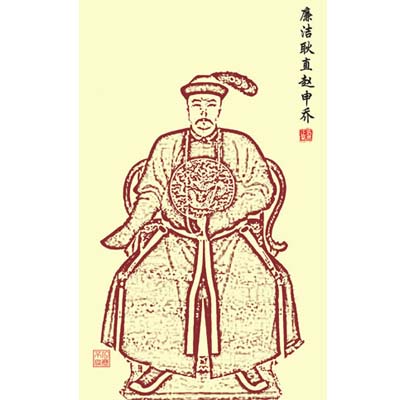In October 1681, Zhao Shen Qiao (趙申喬 1644-1720) was appointed mayor of Shang Qiu (商丘) municipality in Henan province.
At the time, Shang Qiu was frequented by calamities. The taxes levied were high that the people unceasingly rebelled. The place was difficult to govern that any official was hesitant and afraid to assume a position there.
Upon assuming office, Zhao addressed the confusing tax system of the municipality and conducted a thorough verification of the lands. He gave every peasant family a tax voucher as certificate and abolished all other unauthorized tributes that were imposed privately. This greatly reduced the burden of the people.
Before long, Shang Qiu and its surrounding areas encountered drought. Zhao set an example by donating his salary and setting up congee stations everywhere to feed the victims to the extent of converting some high quality silk fabric into food to give relief to the victims.
Upon learning about the aid rendered by Mayor Zhao to his people, other victims outside the municipality came to Shang Qiu to ask for assistance. Zhao welcomed them and provided them with comfort similarly.
When someone asked Zhao why he was doing that, he answered, “I am from a poor family. My father had been mayor also. He often exhorted that a government official must always think of the common people above all.”
Mind you, the title of Zhao’s story in Chinese is 百姓第一 (baixing diyi). Baixing means common people, diyi means first or above all. Literally, it means the masses first.
In the Philippines, it would be “bayan muna.”
Categories
Bayan muna
